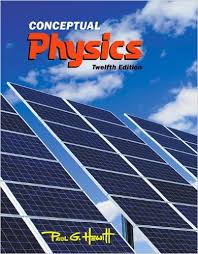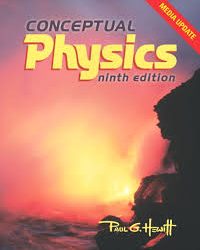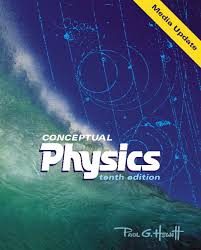(High School) Freshman Physics
Freshman Physics History
This is also referred to as conceptual physics, though I differentiate this course from a conceptual physics course taught at a college level, because of the depth of material covered. Freshman, or conceptual, physics is an entirely algebra based (ie. no trigonometry needed) physics course taught primarily to freshman. Several years ago, perhaps as much as a decade or two, a movement began to teach physics to high school freshman. Whereas in previous decades, namely mine and before, physics was a course only available to high school seniors, because of the math required to do it. That high school physics course required trigonometry, typically taken as a high school junior, at that time, or in conjunction with a pre-calculus course, also usually taken as a junior. The various physics educators and researchers got together, and they learned that physics is a fundamental science that underlies many other sciences. Even biology, they learned, benefited from physics being learned before taking biology. So they designed a conceptual physics curriculum designed for high school freshman. Typically, the students in freshman physics have taken algebra as an eighth grader, and are taking geometry concurrent with freshman physics. If this is not the case with your student, it can be a great challenge. If your student has not yet complete algebra before taking freshman physics, please see my article here: Freshman Physics: To do or not to do
[yikes-mailchimp form=”1″ submit=”Yes, I want to better help my student”]
Freshman Physics wisdom
As a premier San Diego physics tutor for the past decade, I have become pretty familiar with the physics curriculum at various high schools. Several high schools within the San Diego area, predominantly private high schools that I know of, have adopted a curriculum which requires all students to pass freshman physics prior to graduation. I fully support this requirement, and sincerely wish it were a nationwide standard. I haven’t looked at the Next Generation Science Standards (NGSS) lately, but do hope that this requirement is included within it. Nonetheless, this freshman physics class requires only algebra, and is designed to teach the concepts of physics without the mathematical rigor required of more advanced courses. If your student’s high school offers this, I strongly recommend it. Here is an article on the value of high school physics from the American Physical Society: Value of High School Physics Curriculum
Freshman Physics Textbook and Materials
One last thing on freshman physics: in the schools where I have seen it taught, they have a “required” textbook. The truth is, I have never seen a student open it, and I have tutored a LOT of freshman physics. When one is used, the textbook is usually Conceptual Physics by Paul Hewitt. Here is the latest edition:
 I don’t have a copy of the current edition, but I do have a copy of the 9th and 10th editions:
I don’t have a copy of the current edition, but I do have a copy of the 9th and 10th editions: 

I have the full instructor’s set of materials for the 10th edition – practice tests, workbooks, videos, lab manual. There are about 10 books in all. It is a lot to keep track of, but it has saved many student’s grades when then needed more practice with the material than what their teacher offered.
Freshman Physics Tutoring Experience
Several years ago, when I was applying for my position as Adjunct Professor of Astronomy and Physics at Saddleback College in Mission Viejo, California, I had to complete a ledger identifying how many hours of each physics, math, chemistry and astronomy subject I had tutored. Well, this was five years ago now, and it was well over one hundred hours as a San Diego physics tutor. At one point, I had tutored so many students in freshman physics from La Jolla Country Day School, that I had their homework memorized, and knew what their teacher was going to assign before the student did. I still have a La Jolla Country Day School freshman physics syllabus and the complete packet that they give each student at the beginning of each semester. It contains all their class assignments, homework, examples, and worksheets. One of my student’s parent’s scanned it in and emailed it to me. So when I say I am fully prepared to ensure your student earns an A in freshman physics, I mean I am fully prepared.
How do I choose a physics tutor?
This is such an important topic, that I wrote a whole article on it. Read it here: